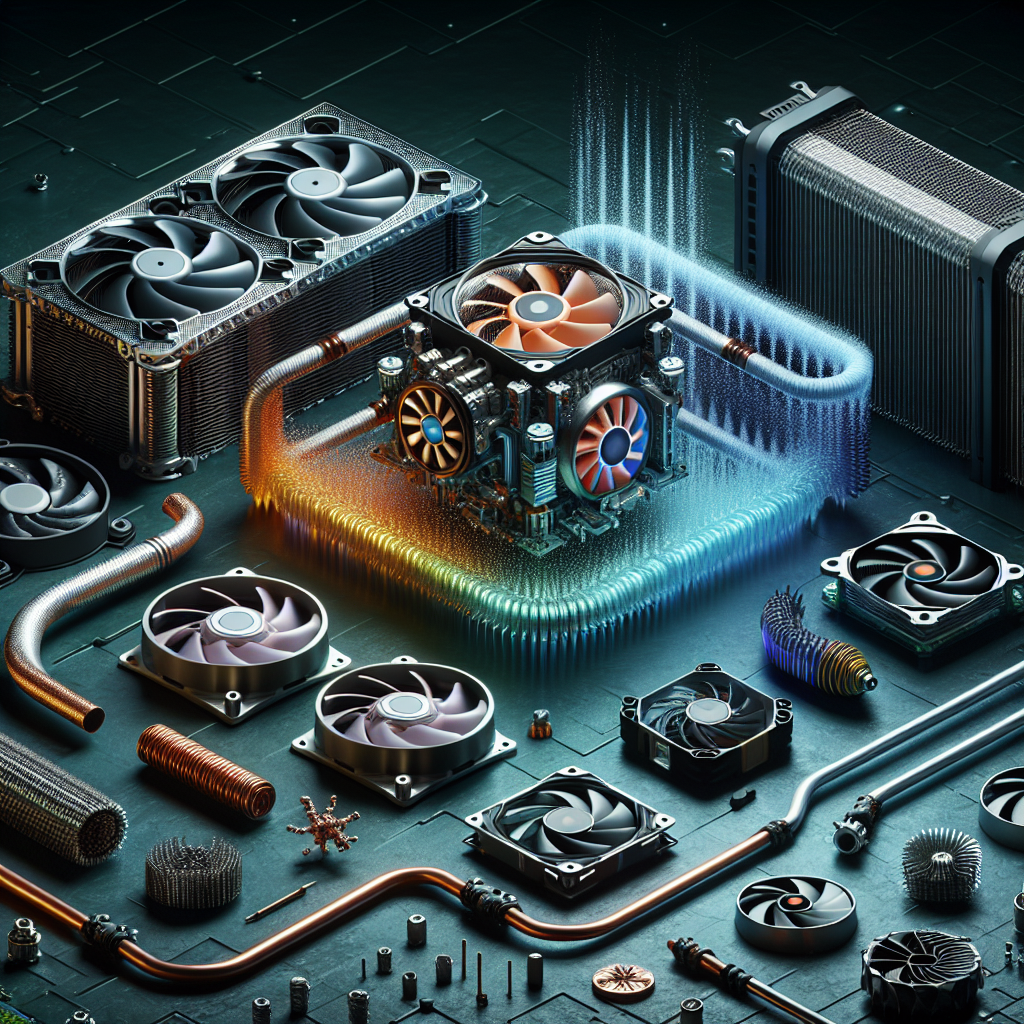As computing technology experiences continual advancements, one crucial component often overlooked is the cooling system. The cooling system safeguards the central processing unit (CPU) from overheating, ensuring stable and optimal performance. This article delves into the advancements in PC cooling systems, marking a new era of innovation that has significantly influenced the PC performance.
1. The Evolution of PC Cooling Systems: A Historical Overview
The inception of the personal computer (PC) in the 1970s marked the beginning of a technological revolution. Initially, PCs were simplistic in their design and functionality, and cooling systems were not a primary concern. However, with the upsurge of more powerful processors in the late 1980s, the need for effective cooling systems became evident. The first cooling systems were passive, relying on heatsinks to dissipate heat away from the processor. As PCs evolved, cooling technology advanced to include active cooling methods such as fans and liquid-based coolers.
By the 1990s, PCs were becoming more ubiquitous and powerful, requiring more sophisticated cooling systems. Manufacturers began to adopt active cooling solutions, incorporating fans to improve air circulation within the system. This method proved efficient, but not without its setbacks such as noise and limited cooling power. In the late 2000s, liquid cooling systems emerged as a superior solution. These systems use a coolant to absorb heat from the CPU and then dissipate it through a radiator.
The current decade has seen the evolution of PC cooling systems go beyond liquid cooling, with new technologies like vapor chamber cooling and thermoelectric coolers making their way into mainstream use. These advancements in PC cooling systems have not only significantly improved the cooling efficiency but also reduced the audible noise produced during operation.
2. Innovative Advancements in Modern PC Cooling Technology
The modern era of PC cooling technology is characterized by creative, effective, and efficient cooling solutions. The traditional fan-based and liquid cooling systems have evolved, incorporating advancements in material science and design to enhance their cooling efficiency. For instance, the use of copper in heatsinks and heat pipes has become common due to its superior heat dissipation properties compared to aluminum.
Advancements in PC cooling systems have also led to the development of more advanced liquid cooling solutions. These include closed-loop liquid coolers, which are pre-assembled and require minimal installation effort, and open-loop liquid coolers, which offer the highest cooling performance and are customizable but require expert installation and maintenance.
Thermoelectric cooling, a relatively new technology in PC cooling, uses the Peltier effect to create a temperature difference and thus, cool the CPU. This technology, although still in its infancy, promises a future where PCs can be cooled without the need for fans or liquid, reducing the size and noise of the cooling system.
3. The Impact of Improved Cooling Systems on PC Performance
Improved cooling systems have a significant impact on the performance and longevity of a PC. As the CPU performs tasks, it generates heat. When this heat is not adequately dissipated, the CPU can overheat, resulting in decreased performance and potentially damaging the component. Therefore, an efficient cooling system is vital for maintaining optimal CPU performance and preventing premature hardware failure.
A well-cooled CPU can run at its maximum speed for extended periods, performing tasks faster and more efficiently. This is particularly beneficial for gamers and professionals who run demanding applications that require high CPU performance. Moreover, advancements in PC cooling systems have improved the aesthetic appeal of PCs, particularly for gaming rigs where liquid coolers with RGB lighting have become a popular choice.
These advancements in PC cooling systems have also paved the way for overclocking, a process of pushing a CPU beyond its factory-set clock speed to achieve higher performance. Efficient cooling is crucial in overclocking as it prevents the CPU from overheating during the process.
4. Summary: The New Era of PC Cooling Systems Innovation
In conclusion, the new era of PC cooling systems innovation has significantly changed the landscape of PC technology. From the simple heatsinks in the 1980s to sophisticated liquid and thermoelectric cooling solutions today, the evolution and advancement of PC cooling systems have substantially improved PC performance and design.
This innovation has led to the creation of PCs that are not only powerful but also quieter and more aesthetically pleasing. It has also enabled the possibility of overclocking, lifting the performance potential of CPUs. The advancements in PC cooling systems continue to evolve, promising a future of even more effective and efficient cooling solutions.
As we strive to push the boundaries of computing technology, the role of efficient cooling systems continues to be of paramount importance. The advancements in PC cooling systems have not only enabled us to create better performing and more reliable PCs but also transformed the way we perceive and interact with them. This new era of innovation is just a glimpse into what the future of PC cooling systems holds.











